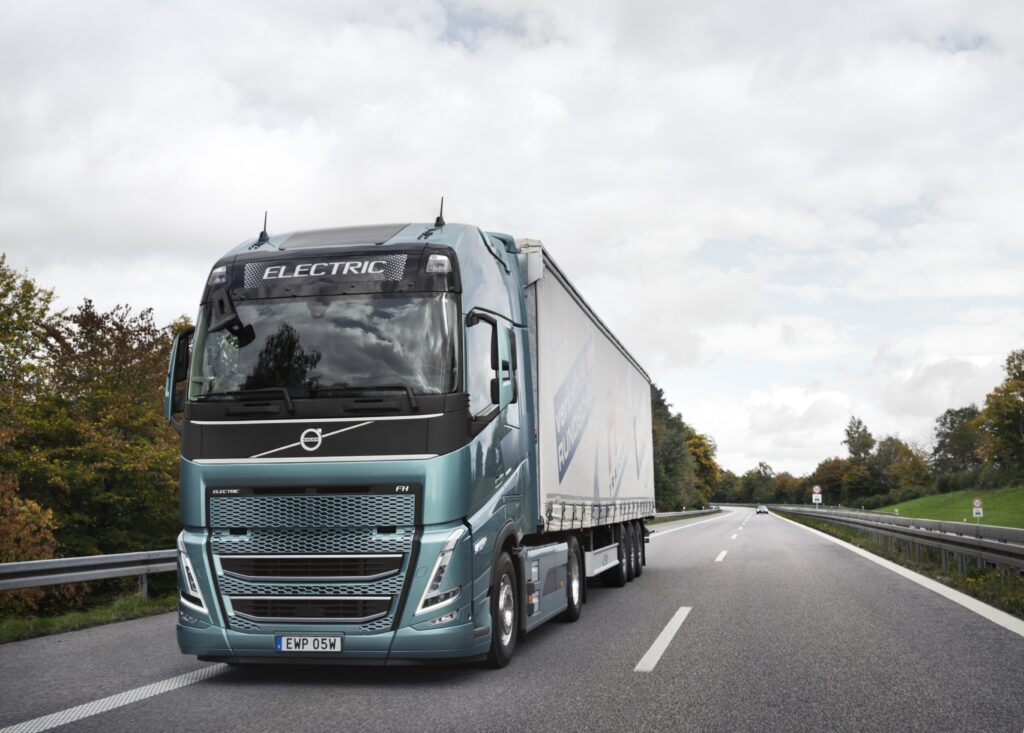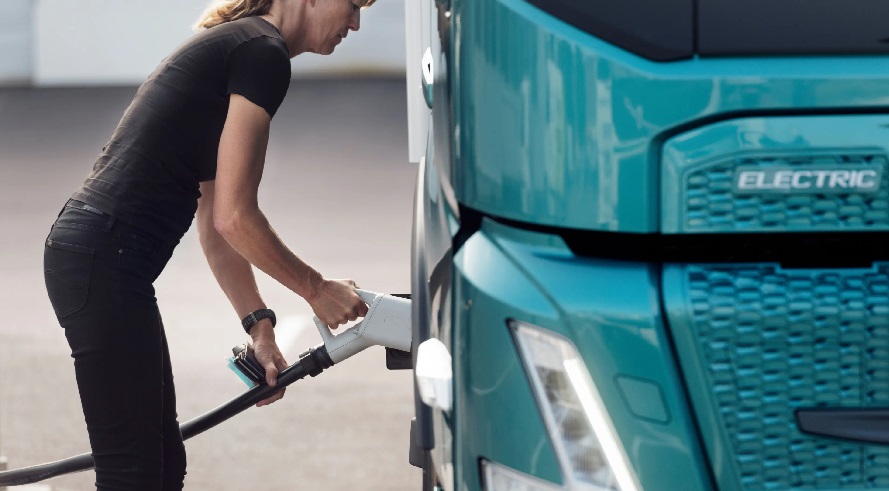Next month, the Lithuanian government is set to launch a financial support programme to encourage the purchase of electric trucks and tractors.

Kęstutis Vanagas, Advisor of the Future Mobility Policy Group at the Ministry of Transport and Communications, reveals to Mobility Portal Europe that, although the exact figure is not available, “it is likely to be in the range of ten to thirteen million euros for both calls.”
The information will soon be publicly available on the European Union (EU) Funding for Lithuania website.
“One of the main ideas is to boost Lithuania’s heavy-duty sector, but it may take a long time. However, the sums involved are as large as we should expect to drive it forward,” says Vanagas.
The planned support amount for the purchase of N3 eTrucks is 50,000 euros, although it is yet to be confirmed.
In addition to that, the incentive for electric freight vehicles and buses has been available since 2023, and is also set to be expanded by the end of this month.
A fixed grant of 12,000 euros is provided for electric goods vehicles in the N2 category and smaller M2 buses, while larger M3 buses are eligible for 60,000 euros in support.
Currently, there are 566 electric buses and only eight eTrucks registered in the Baltic region, but the aim is to significantly accelerate these numbers with the introduction of these new measures.
Alongside the incentives for purchasing electric trucks, the government has also developed financial support programmes for charging infrastructure, which is vital for the growth of electromobility.
This includes the implementation of charging stations for both public transport and heavy goods vehicles.
That measure is aligned with the Alternative Fuel Infrastructure Regulation (AFIR) and involves careful planning to meet regulatory requirements.
As part of this process, the national “Map of the Development of Charging Infrastructure for EVs” has been updated to outline the recommended locations along TEN-T corridors where publicly accessible charging stations for HDEVs should be installed, with a margin of plus or minus ten kilometers.
To support this initiative, 12,500,000 euros in EU funding has been allocated for installing charging devices at the designated sites, including urban areas and secure parking nodes, as stipulated by AFIR.
A call for financial support is expected to be announced soon, offering funding for the installation of equipments above one hundred fifty kilowatts.

Depending on the location and the applicant, grants will cover between 25 and 60% of the total costs.
Auste Pranckute, co-founder of Stuart Energy, highlighted that major Lithuanian public transport providers are already taking steps to electrify their fleets, which requires careful planning and substantial investments in infrastructure.
“We are deeply involved in discussions and sharing best practices on how to create sufficient and effective charging infrastructure for both public transport and fleet companies,” states Pranckute.
Public fund for charging stations
The Lithuanian Energy Agency now invites companies and institutions to install private charging stations for electric cars, with the financing increased to 50% from the previous 30%.
Small businesses, public entities, and medium to large companies eligible for state de minimis aid can apply for this funding.

According to Agnė Bagočiutė, Director of the Lithuanian Energy Agency, the process has been streamlined to allow companies that have already installed charging stations to submit requests together with payment documentation, speeding up the grant process.
Lithuania has already installed nearly 2,200 private charging points with state funding, and over 6,000 new access points are planned, totaling 4.3 million euros in allocated funds.
Companies can receive from 993 to 1,662 euros per charging point, depending on its installation type.
The project aims to encourage the installation of over 53,000 private charging stations by 2026, backed by 45 million euros from the EU and nearly 390 million euros from the national budget.
Private investments: Volvo to launch eTruck with greater range
In the private world, Volvo will introduce a new long-range version of its eTruck next year, the Volvo FH Electric, capable of travelling up to 600 kilometres on a single charge.

This innovation will enable transport companies to operate electric units on regional and long-distance routes, covering full working days without needing to recharge.
“Our new flagship electric vehicle will be a great addition to our extensive range of electric trucks and will allow for emissions-free transport over longer distances,” says Roger Alm, President of Volvo Trucks.
Alms adds: “It will be an excellent solution for transport companies with high annual mileage and a strong commitment to reducing carbon dioxide emissions.”
In addition, the company recently inaugurated a new 360 kilowatt charging station at the Kaunas Truck Center, installed by UAB Volvo Lietuva in collaboration with UAB Ěkrautas.
This hub, equipped with an ABB Terra 360 charger, is designed to accommodate the needs of electric heavy-duty transport and provides a convenient charging solution for operators of electric trucks.
With the capacity to charge two vehicles simultaneously, it represents a significant step towards advancing heavy-duty electric vehicle infrastructure in the Baltic countries.
With the introduction of the planned financial support next month and technological advances in electric trucks, the Lithuanian market is well-positioned to benefit from a significant transformation in heavy transport.
However, there is still progress to be made in continuing to incentivize electromobility, considering its currently limited truck fleet.








